If You Have A Garden
In Your Library
Participatory floral action, public engagement, photography 2020.
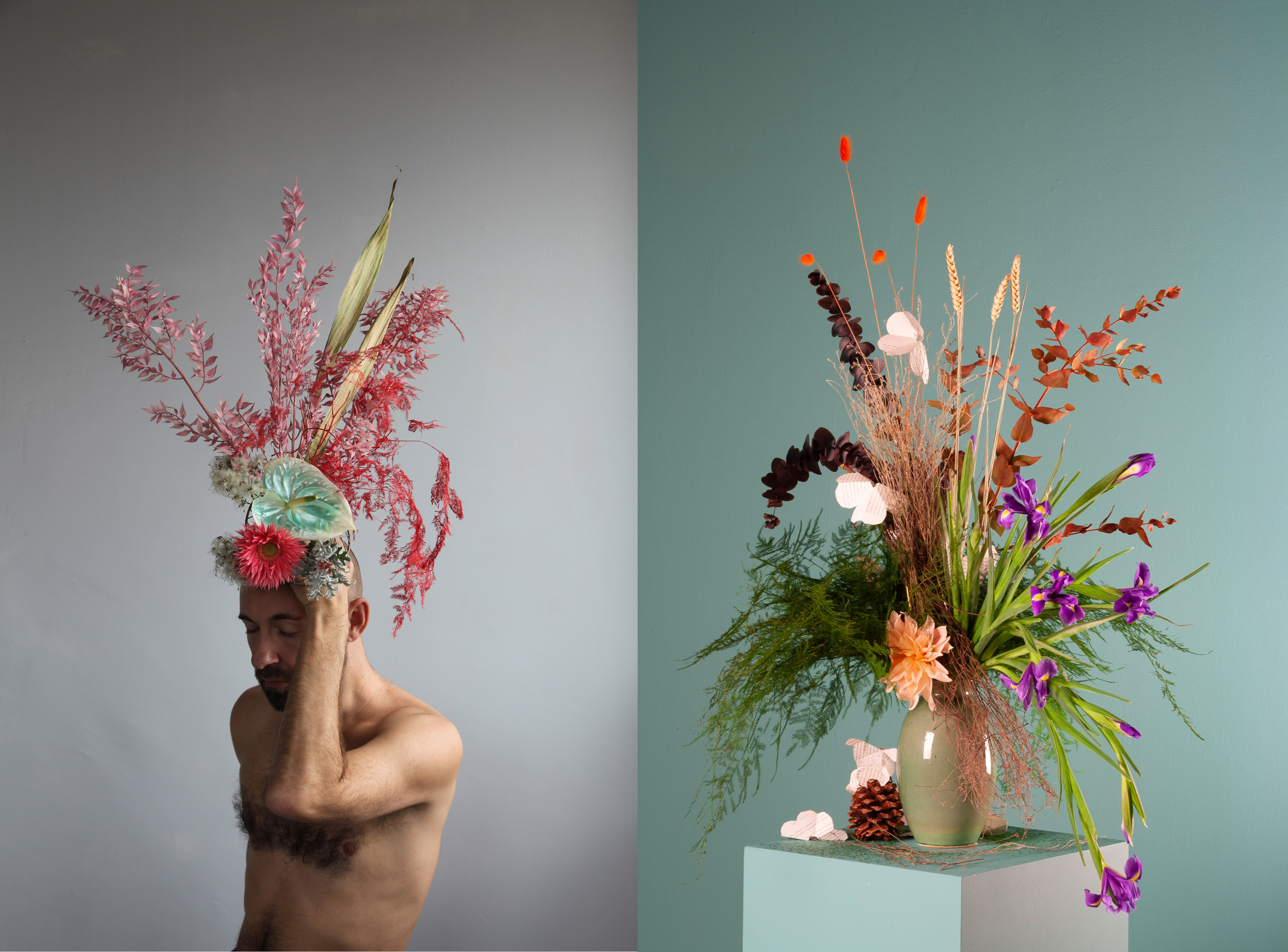
Twenty-six floral arrangements were produced to accompany Nemer’s multi-chaptered audio project, I Don’t Know Where Paradise Is, which mediates encounters with objects found in the libraries, gardens, and homes of a group of loosely-interconnected gay scholars in Europe and Canada. Each week, a member of Ottawa’s LGBTQ+ and Two Spirit community created a bouquet with local florist Kat Kosk, each one in response to a selected chapter of the audio work. Nemer joined them with his own weekly arrangements, created in his studio at the Fondation Fiminco in Paris.
The Ottawa arrangements were displayed each week at the Carleton University Art Gallery in a solo exhibition curated by Heather Anderson. Photographs of the paired arrangements were circulated on social media and a dedicated page of the gallery’s website, which also featured the selected audio chapter. Respondents Vincent Edet, Benny Michaud, Sam Loewen, Lydia Collins, Bill Brown, and John McKinven worked with Kat Kosk to interpret visual and affective cues from the audio chapters, often integrating non-botanical elements from their personal collections into the arrangements, including photographs, crystals, book pages, a cockring, a whip, and Tarot cards.
If You Have A Garden In Your Library emerged as a response to a series of limitations the 2020 pandemic placed on Nemer and Anderson’s original plans for the exhibition. This new serial, participatory approach activated the project in unexpected ways, loosening authorial control and generating a series of interpretations and translations from different situated positions. In doing so, the queer kinship bonds the audio project seeks to foster was opened outwards, co-imagining queer futures through connections with queer pasts. The exhibition is the subject of a solo catalogue entitled Benny Nemer: I Don’t Know Where Paradise Is, published in 2023.
The Ottawa arrangements were displayed each week at the Carleton University Art Gallery in a solo exhibition curated by Heather Anderson. Photographs of the paired arrangements were circulated on social media and a dedicated page of the gallery’s website, which also featured the selected audio chapter. Respondents Vincent Edet, Benny Michaud, Sam Loewen, Lydia Collins, Bill Brown, and John McKinven worked with Kat Kosk to interpret visual and affective cues from the audio chapters, often integrating non-botanical elements from their personal collections into the arrangements, including photographs, crystals, book pages, a cockring, a whip, and Tarot cards.
If You Have A Garden In Your Library emerged as a response to a series of limitations the 2020 pandemic placed on Nemer and Anderson’s original plans for the exhibition. This new serial, participatory approach activated the project in unexpected ways, loosening authorial control and generating a series of interpretations and translations from different situated positions. In doing so, the queer kinship bonds the audio project seeks to foster was opened outwards, co-imagining queer futures through connections with queer pasts. The exhibition is the subject of a solo catalogue entitled Benny Nemer: I Don’t Know Where Paradise Is, published in 2023.
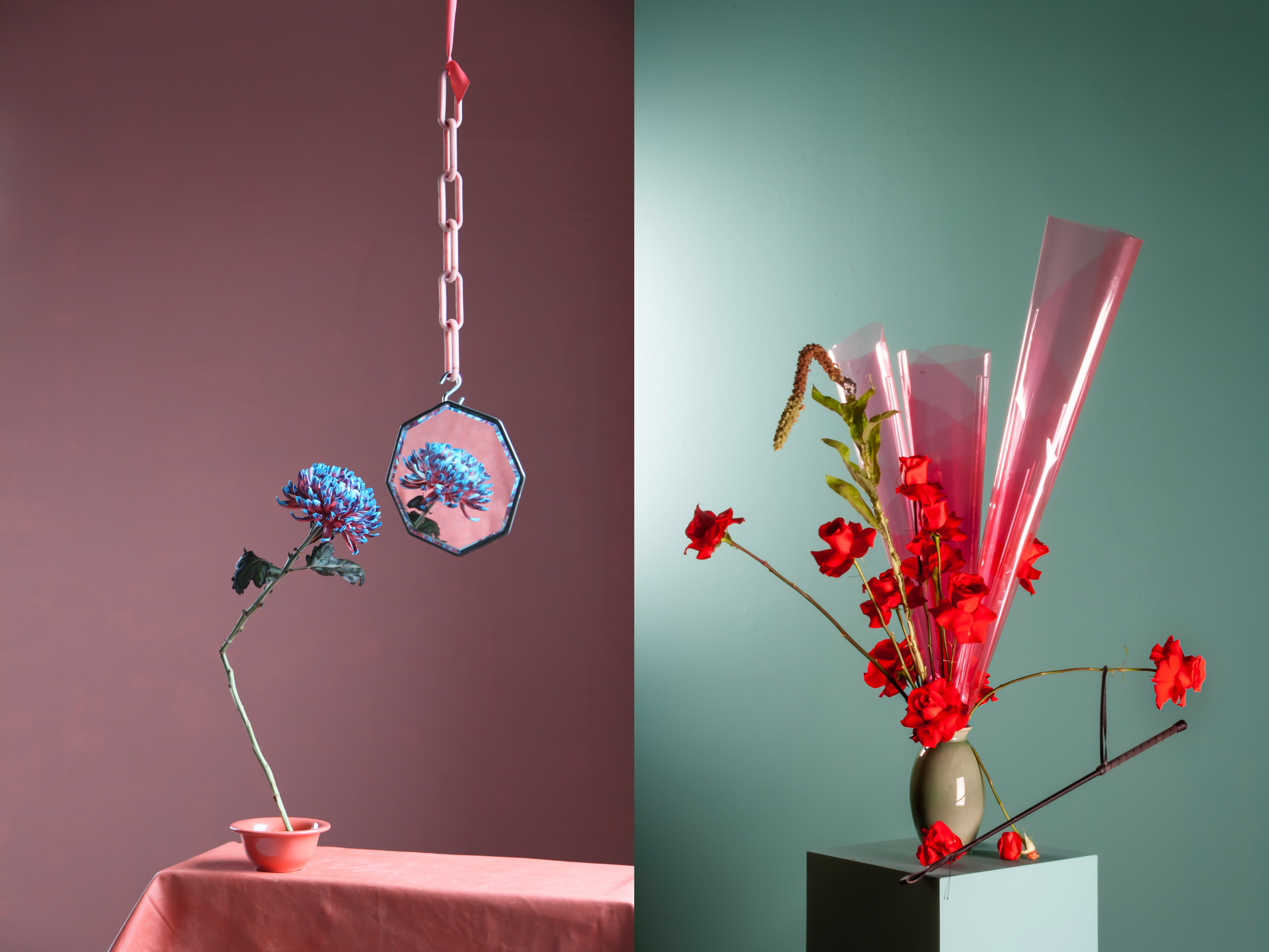
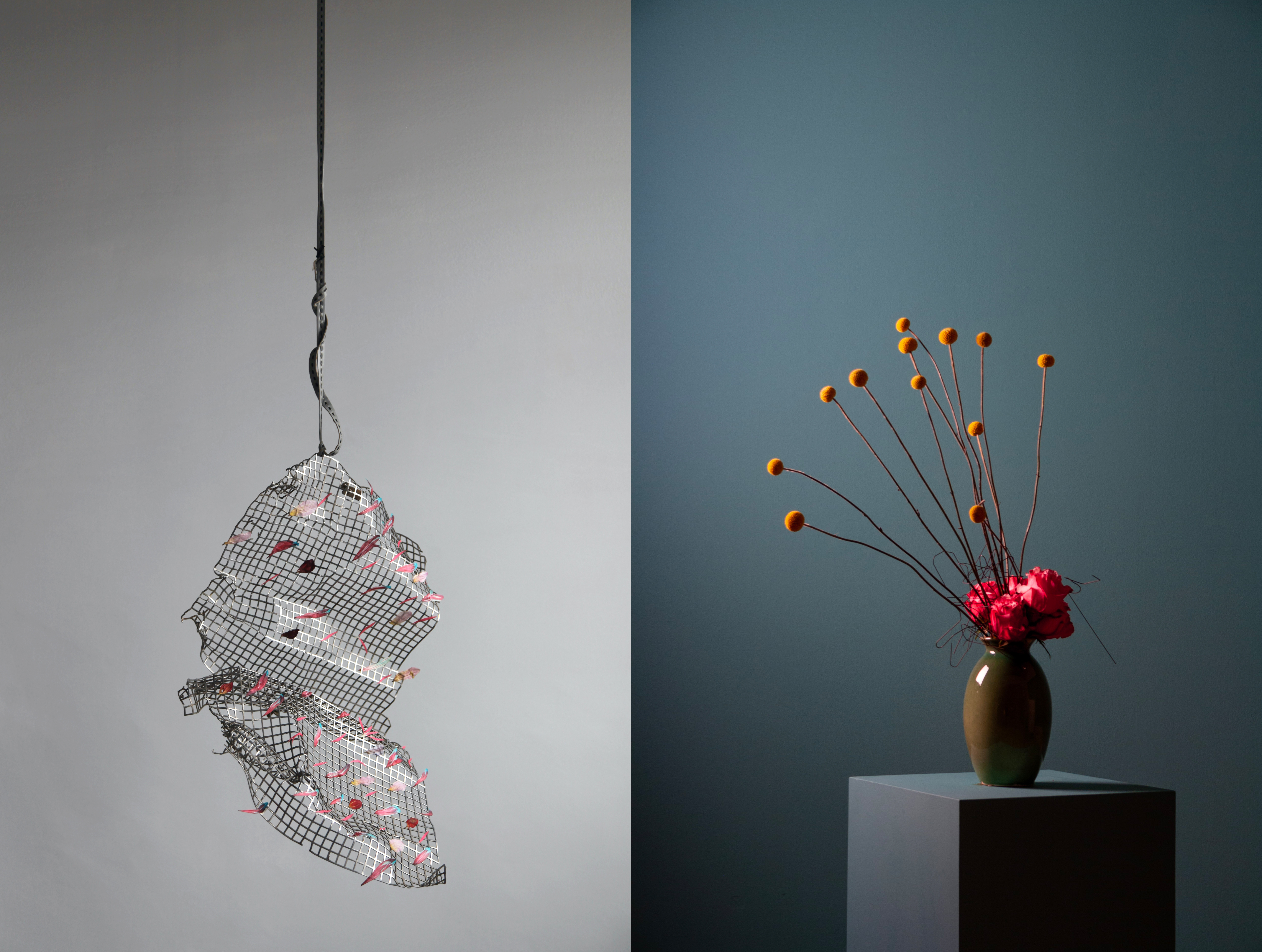
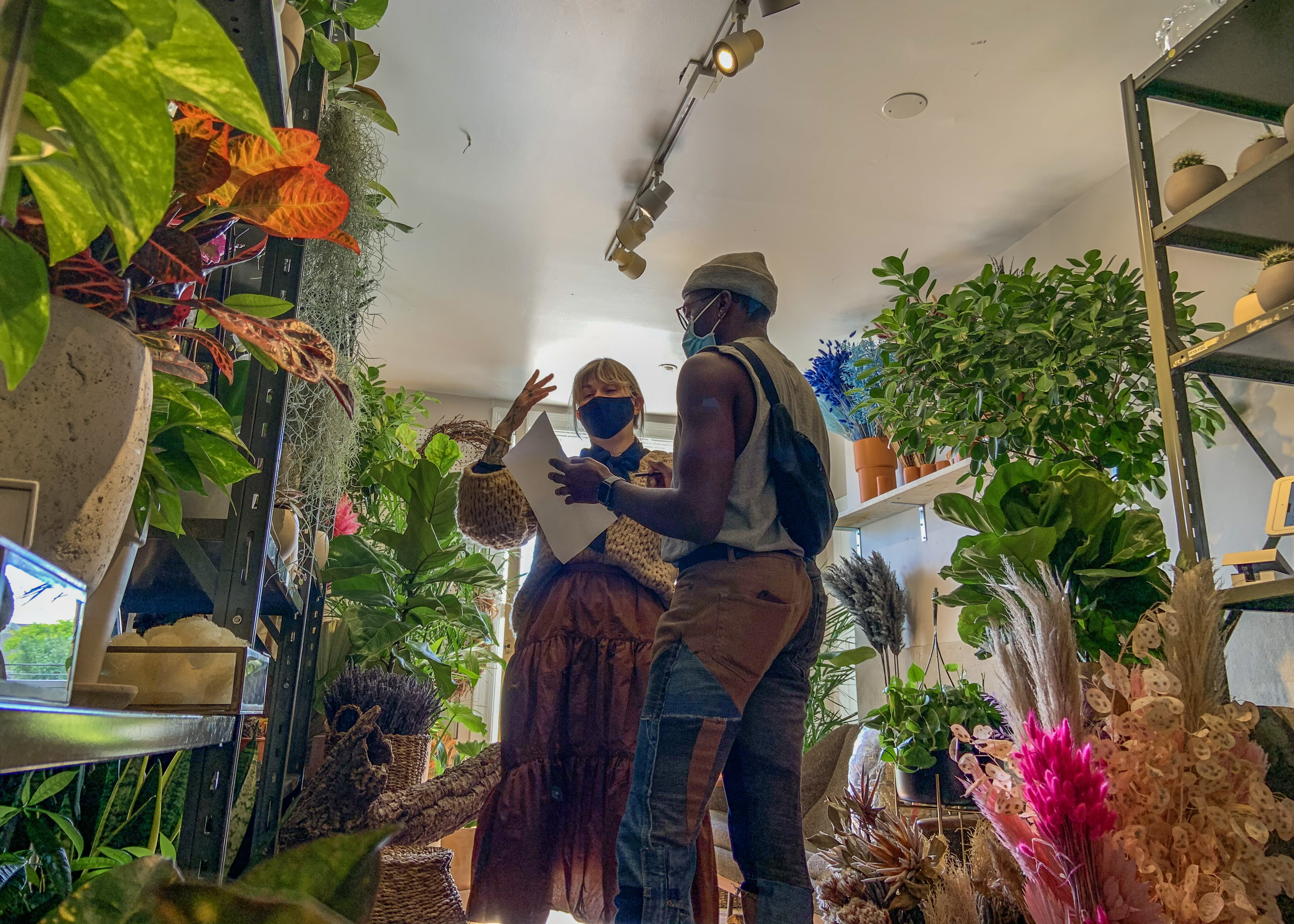

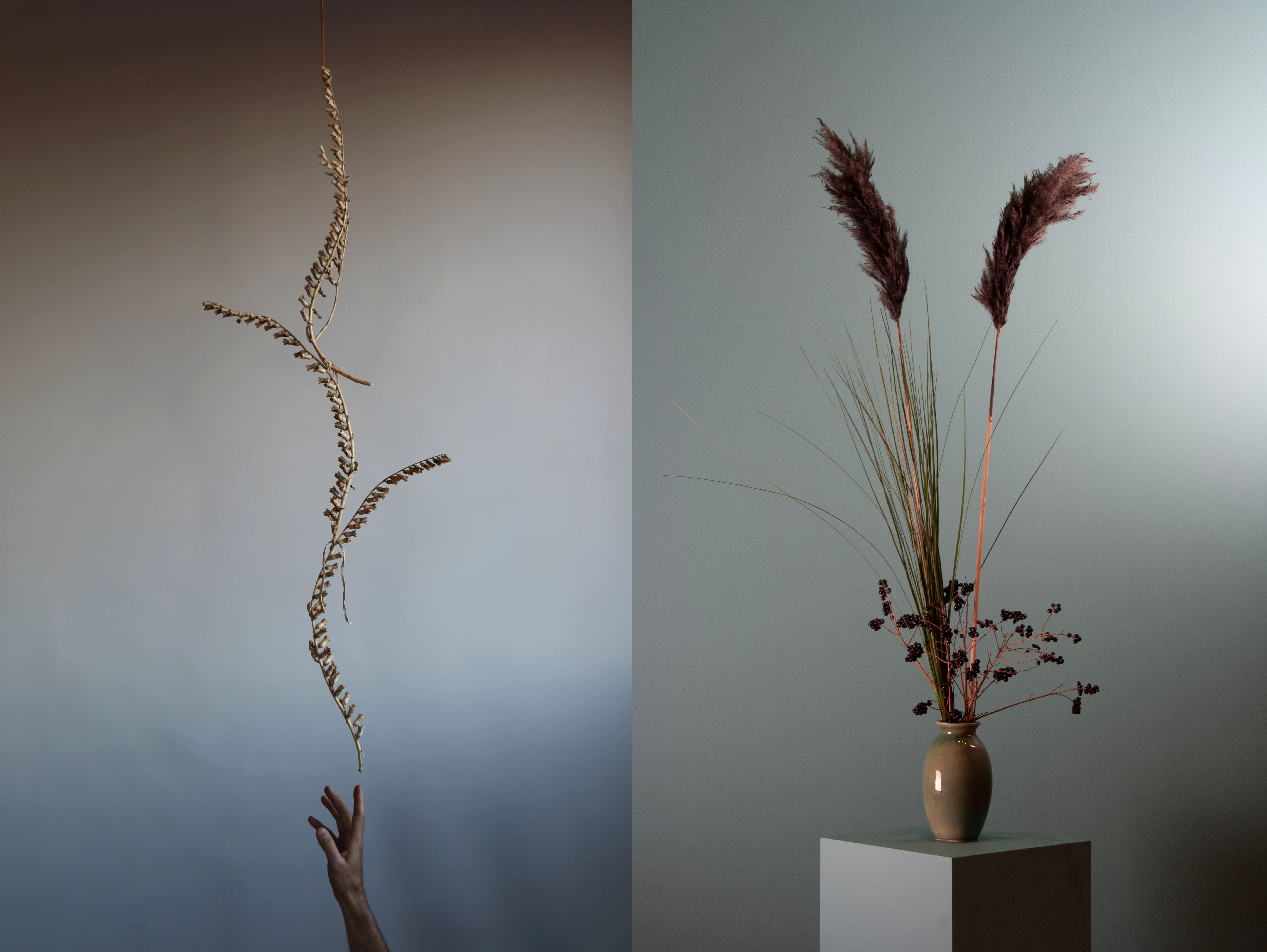
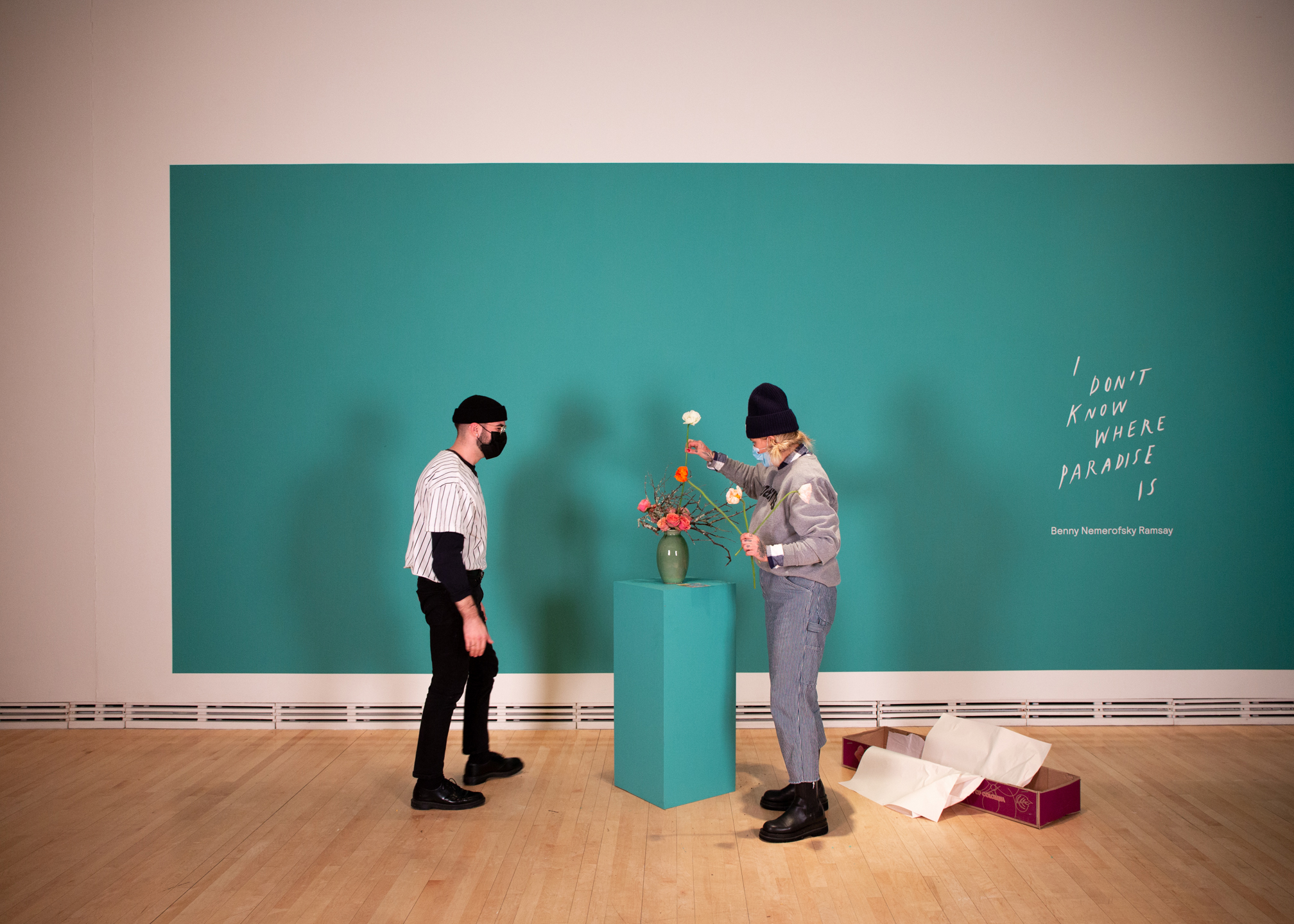
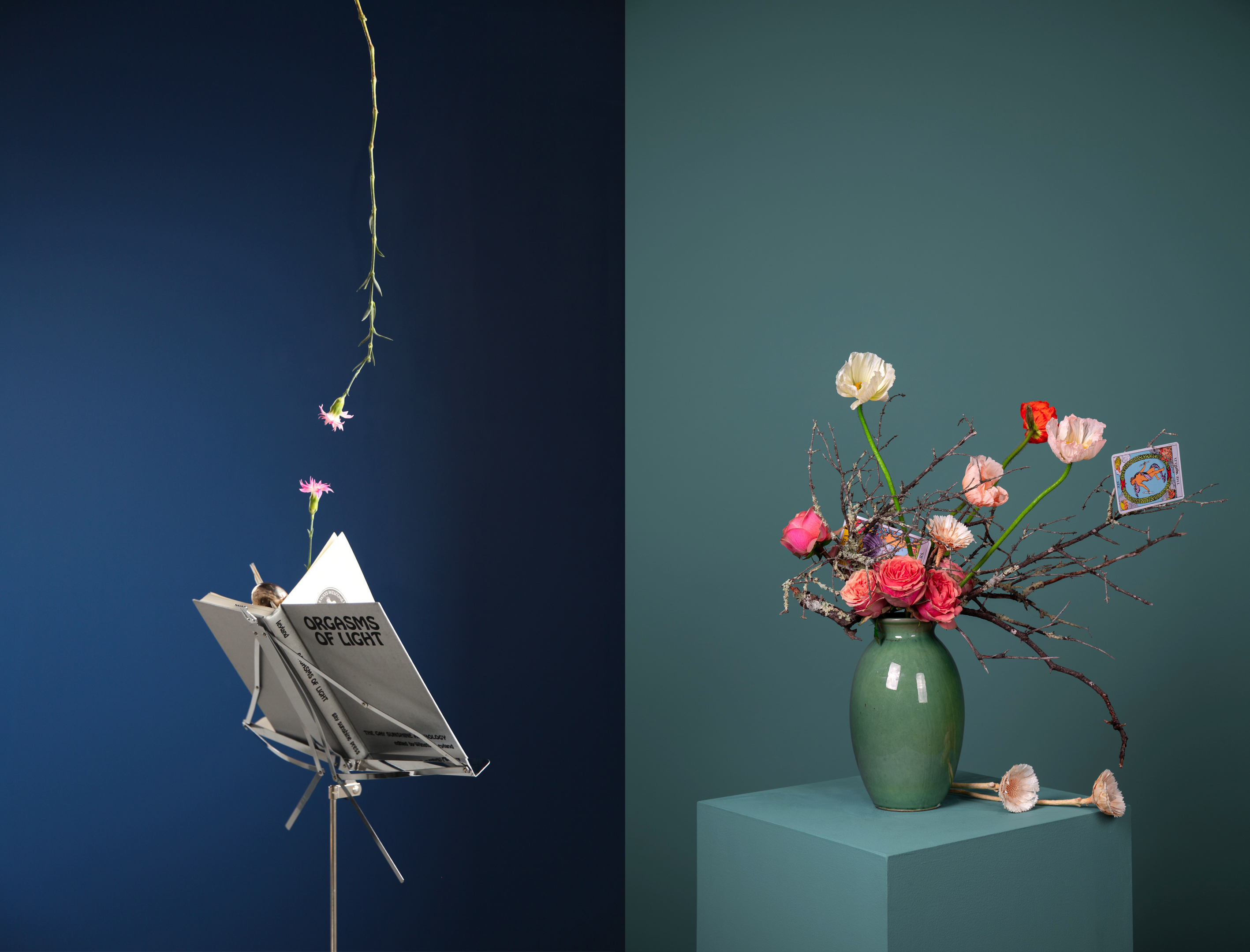

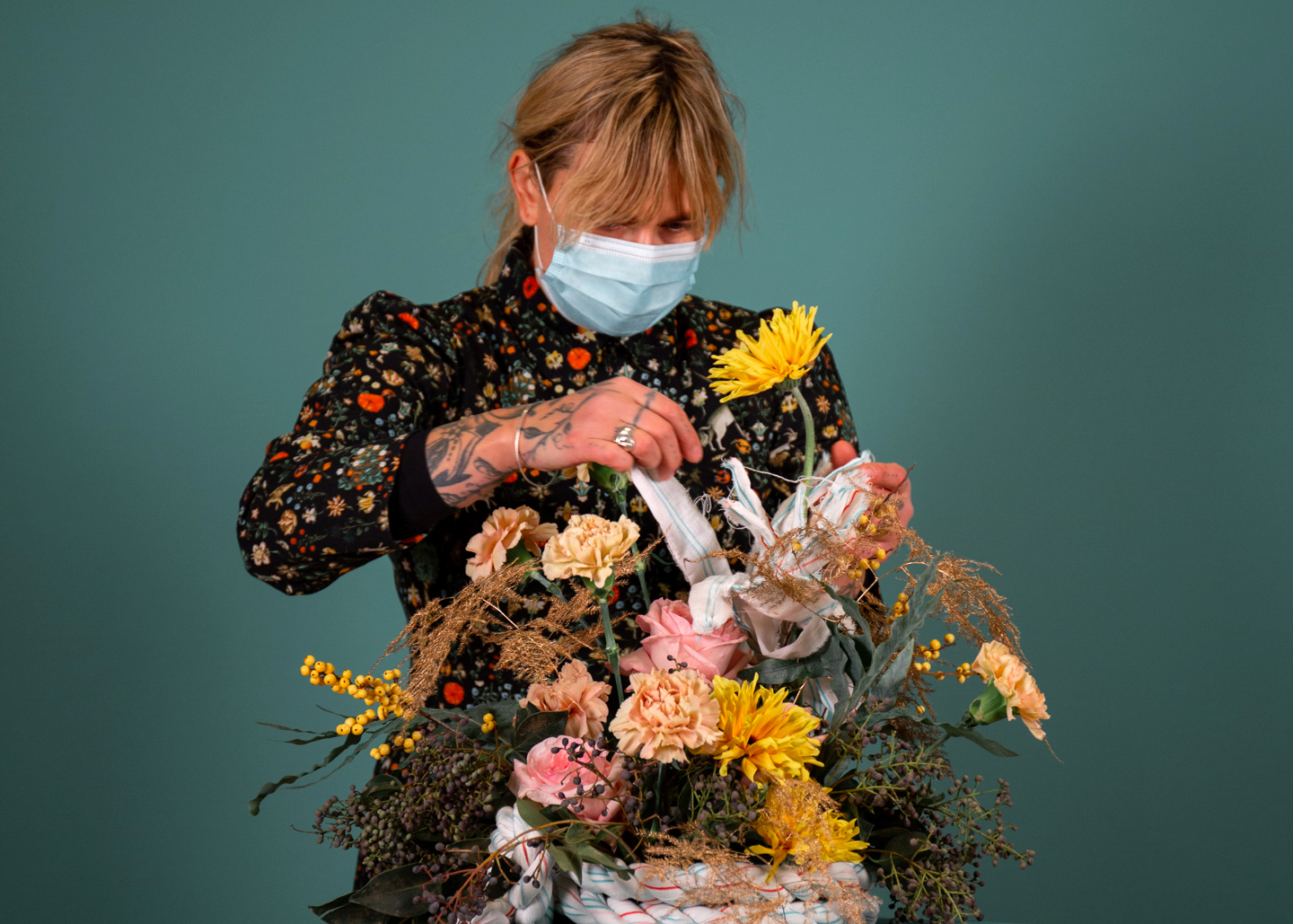
Photos by Nemer, Jason Laguerre, Olivia Johnston